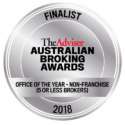There are three main type of car loans.
Secured car loan
A secured car loan is where the lender takes security of the vehicle being financed. Also known as a charge or lien, having security over a vehicle allows the lender to repossess the vehicle if loan repayments are not made and the account is in default. The vehicle would then be sold to help the lender regain part or all the remaining loan amount due, plus any outstanding fees and charges. Where the lender is unable to recover all outstanding amounts due, the borrower is still responsible for repaying any remaining balance to the lender.
Secured car loans usually carry more favourable terms, such as lower interest rates, as a borrower is less likely to go into default on their loan when they risk losing their vehicle. The security over the vehicle is listed against the vehicle on the Government Personal Property Securities Register, or PPSR, and is only removed once the loan has been repaid in full.
Car dealers, by law, are not allowed to sell a vehicle which is listed on the PPSR. However, if purchasing a vehicle second hand, the buyer should check to ensure the vehicle is not showing on the register, as the security is held against the vehicle, not the borrower, meaning the lender could still repossess the vehicle even if its ownership has changed.
Lenders will not proceed with a secured car loan if there is an existing security registered over a vehicle unless the lender is paying out that loan as part of the transaction. Secured loans are available for both new and used cars, as well as for purchases from a dealership or via private sale.
Unsecured loan
An unsecured loan is where the lender does not take any security against the loan made to the borrower. With an unsecured loan, the lender has no ability to repossess the vehicle if loan repayments are not made and the account is in default. However, the borrower is still responsible for repaying any remaining balance due to the lender.
Unsecured car loans usually carry less favourable terms, such as higher interest rates and reduced maximum loan amounts, as the lender does not have the ability to repossess and sell a vehicle held as security to recover any losses. Borrowers are also more likely to go into default on their loan when they do not risk losing their vehicle if repayments are missed.
Where an unsecured loan does go into default, the lender is still able to record this against the borrower’s credit file which may impact their ability to obtain finance in the future.
Unsecured loans are available for both new and used cars, as well as for purchases from a dealership or via private sale.
Novated lease
A novated lease is a method of financing your vehicle purchase which uses your pre-tax income to repay the loan. Eligibility for a novated lease relies on consent from your employer to participate in the arrangement.
While the vehicle and loan are in your name, your employer is required to agree that they will make the repayments to the lender on your behalf as part of your salary package, and the arrangement may result in fringe benefit tax obligations for your employer where the vehicle has a percentage of private use.
Novated leases can include only the lease payment, the lease payment plus some running expenses of the vehicle, or the lease payment plus all vehicle related costs. Known as salary packaging, this can include registration, insurance, servicing, tyres, and fuel.
Novated leases are a secured loan product, and are available on both new and used vehicles, and for vehicles purchased from dealerships or through private sale.
How do I obtain preapproval?
Obtaining finance preapproval for your next car loan is the same process as obtaining finance approval, except for the availability of the specific information relating to the vehicle you are buying. To have your finance preapproved you will need to complete an application and provide the information and documents required by the lender to assess your application.
Having a preapproval in place gives you greater confidence to find and negotiate the purchase of your next vehicle and can speed up the process once you do find the car you want to buy due to part of the finance process having already been completed.
Preapproval can also be obtained when your new car vehicle is on its way to the dealership but has not yet arrived, with identifiers such as registration number, VIN number and engine number currently unknown.
Preapprovals are available for new and used vehicles, and for purchases from a dealership or private sale.
The simplest way to obtain preapproval for your next car loan is to speak with us.
Brokers vs dealer car finance
Few people are aware that car dealerships can make as much money when they finance your vehicle as they do when they sell you the vehicle, sometimes more!
Even fewer people are aware that car dealerships have operated under an exemption from following the National Consumer Credit Protection (NCCP) Act 2009 when offering finance to their customers. The NCCP Act is there to protect consumers when it comes to obtaining credit, and dealerships operate under a loophole known as the Point of Sale (POS) exemption.
In contrast, when you see a broker for your car finance you fall under the protection of the NCCP legislation.
Here are a few tricks that dealerships use when they offer finance on the vehicle they’re selling you, and how we as brokers help you avoid making a costly mistake.
Supply Control: The car dealership holds the keys to your new car – they have something you want. This gives them a position of power in negotiating the sale, and the ability to impose undue influence over the transaction. As a customer it is very easy to fall into the trap of following the salespersons direction as they have control over supplying you the vehicle.
Solution: As brokers, we work closely with car buying agents who have direct access to fleet sale departments with car manufacturers.
Due to their lower overheads (they don’t need expensive showrooms or a sales team), access to fleet discounts, and knowledge of the industry when it comes to negotiating a sale, a car buying agent is able to source vehicles and provide access to test drives without the need to ever visit a dealership.
Disclosure Requirements: Under a car dealer’s POS exemption to the consumer credit protection laws, dealerships are not required to perform the same checks and balances or meet the same disclosure requirements as the rest of those to whom the NCCP Act applies. When going through the finance documentation it is easy to get caught up in the excitement of receiving your new car, increasing the chance you’ll miss detail in the contract, or fail to ask questions where there is something you may not understand.
Solution: Brokers understand the importance of speed when it comes to having your finance in place when purchasing a new car. We are usually able to obtain loan approvals as fast, or faster, than the dealership. At the same time, we will always take the time to run you through the lender contracts and answer any questions you have. As brokers we are bound by not only the NCCP Act, but also the Best Interests Duty legislation which requires us to put your best interests ahead of the lenders and our own.
Uncompetitive Finance: When you are offered finance by the dealership, you will only be offered finance from the lender or lenders who they have available, and you may not have access to more competitive products in the market. Under the POS exemptions available to dealerships, they can place your finance to the lender who pays them the most.
Solution: As well as being bound by the various credit laws and consumer protections, a primary benefit of using a broker is access to a range of lender options and help with finding a lender who best meets your needs and requirements.
Special Offer Conditions: When a dealership offers a special deal on either the purchase price, or the finance, you are usually locked into using the dealership to both supply and finance your new car. While you may be getting a good deal on one side, you will be paying for this on the other side of the transaction. These locked offers are usually disclosed in the fine print, stating that to access the special purchase price, you must use the dealerships finance option. Or alternatively, to access the low-rate finance, you must purchase the car from the dealership at their recommended retail price.
Solution: The best way to ensure you are getting the best deal overall is to use a car buying agent for the supply of your vehicle, and a broker for the finance. The easiest way to check you’re getting a better deal is by comparing your repayment using the car buying agent and broker against what the dealership is selling you.
Guaranteed Buyback Programs: Different car brands give their guaranteed buyback programs different names, but they all operate in the same way. To qualify, they lock you into using the dealership for the supply of the vehicle and the finance as outlined above. In addition to this they have a list of strict conditions that must be met to qualify for the quoted future guaranteed buyback price.
The main benefit for the dealership, in addition to making profit margin on both the vehicle sale and the finance, comes when you return to the dealership to have them buy back your car. Firstly, the dealership has you returning to them to sell your vehicle which gives them the best chance of selling you a new car. If that wasn’t enough, the dealership will then find a reason in the small print of the agreement as to why you do not qualify for the agreed buyback price. As a solution to the problem, the salesperson will then offer to get you the agreed buyback price (or at least an improved offer) if you purchase your next vehicle with them.
Solution: Guaranteed buyback programs are designed to advantage the dealership, not the customer. Our recommendation is to avoid these types of programs if you want to obtain the best financial outcome for yourself. You will achieve a far superior outcome if you source your vehicle via a competitive process using a car buying agent, finance your vehicle on the best option available through your broker, and then have the freedom to either sell your vehicle privately or trade it in without restrictions when it is time to upgrade.





